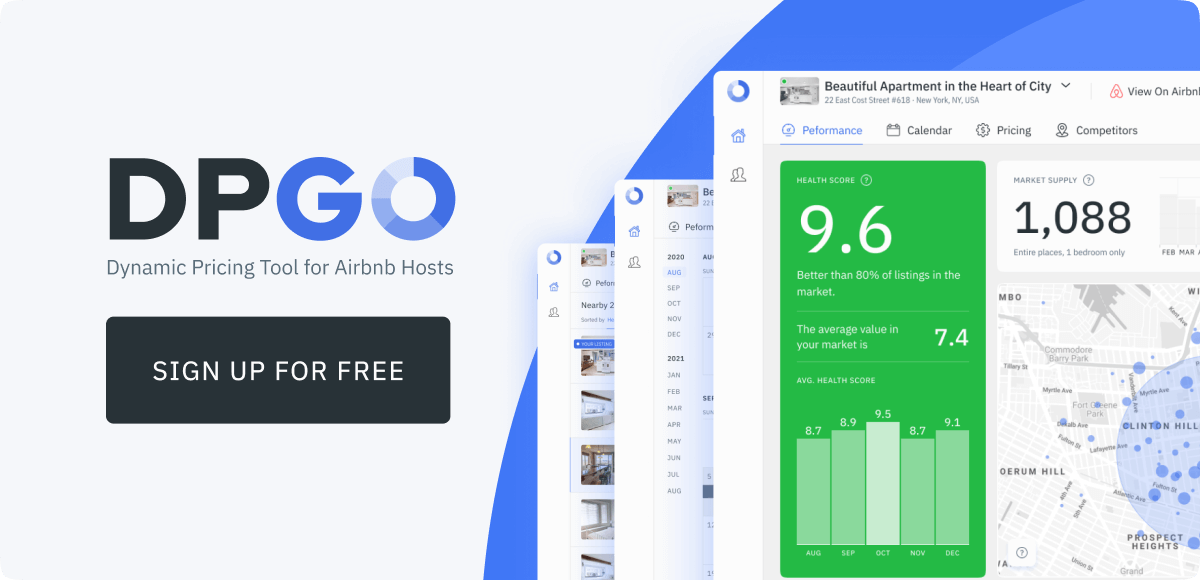Every Online Travel Agency (OTA) like Airbnb charges a service fee. The amount, especially for Airbnb hosts, might surprise you. But we’ve repeatedly been assured that this money we all pay in service fees is put to good use.
Regarding Airbnb specifically, hosts are often told that their service fee amounts are used to improve the Airbnb experience, whether related to the App, the Resolution Centre, or their newer initiatives like AirCover.
First, let’s look at the obvious first question…
What is an ‘Airbnb Service Fee’?
According to Investopedia, “A service charge is a fee collected to pay for services related to the primary product or service being purchased. The charge is usually added at the time of the transaction.
Many industries collect service charges, including restaurants, banking, and travel and tourism. When collected, these charges may cover services rendered to the consumer or administrative or processing costs.
Service charges are paid directly to the company. They are different from tips, which are paid to the employee who renders the service. Paying a tip and the amount is wholly up to the customer.”
OTAs like Airbnb and Vrbo charge service fees in order to invest in their platforms, pay their staff members, and generally just stay in business. They are charged as a percentage of the booking value, and this percentage varies according to the fee structure that the individual host has chosen.

How Do They Use the Airbnb Service Fee Payments?
What Airbnb actually does with your service fees is open to interpretation. The platform has undergone some pretty impressive changes over the past few years. It’s not hard to think that some of the service fees that Airbnb charges were used in this upgrade.
Airbnb recently debuted AirCover, which sees the platform offer its hosts and guests so many added protections including cancellation, damage and claims protection. Of course, Airbnb has a mammoth insurance deal, but without service fees, investments in platform improvements and the like would be impossible.
What Does Airbnb Charge?
Airbnb offers their hosts a chance to choose their fee structure. They’ve long been accused of not being flexible enough with their policies. So, in response, they introduced new features.
At the start of 2021, Airbnb embarked on a recruitment campaign to increase its host numbers. They promised faster response rates from their Resolution Centre, better platform software, and to invest more money in marketing!
The Split-Fee
According to iGMS, the split fee divides the fee between the host and the guest. The iGMS website goes on to explain that “Under the split-fee model, hosts are charged around 3% of the subtotal of the reservation, excluding taxes. However, Airbnb could charge a higher fee for Airbnb Plus hosts, hosts with listings in Italy, and hosts who opt for the Super Strict cancellation policy.
Guests will pay the majority of the service fees. The guest fee usually amounts to around 14.2% of the subtotal of their reservations, on average.”
The Host-Only
As the name explains, a host-only fee structure means that the host elects to pay the entire. Why would some do this? You’d be surprised how well it works as a marketing technique. Guests don’t like paying for things they cannot see, and a service fee is one of them. They would much rather pay slightly more, feel like they’re getting a really lovely listing, and see that the host is covering the whole service fee cost!
 The same iGMS article explains that “The host pays between 14-16% of the subtotal of the reservation. Guests won’t pay a service fee, but hosts may choose to raise their nightly rate to indirectly transfer some or all of the service fee to the guest.”
The same iGMS article explains that “The host pays between 14-16% of the subtotal of the reservation. Guests won’t pay a service fee, but hosts may choose to raise their nightly rate to indirectly transfer some or all of the service fee to the guest.”




Comments are closed.